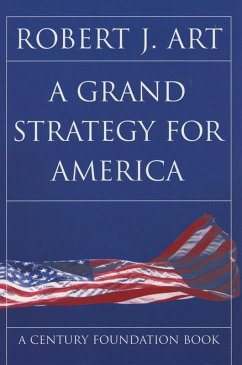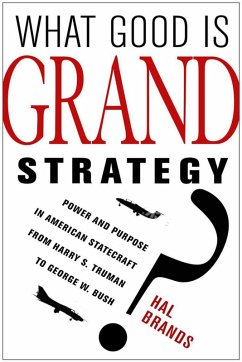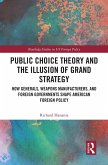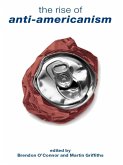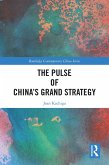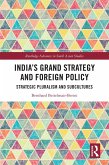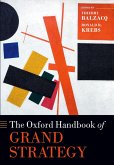The United States today is the most powerful nation in the world, perhaps even stronger than Rome was during its heyday. It is likely to remain the world's preeminent power for at least several decades to come. What behavior is appropriate for such a powerful state?
To answer this question, Robert J. Art concentrates on "grand strategy"-the deployment of military power in both peace and war to support foreign policy goals. He first defines America's contemporary national interests and the specific threats they face, then identifies seven grand strategies that the United States might contemplate, examining each in relation to America's interests. The seven are:
* dominion-forcibly trying to remake the world in America's own image;
* global collective security-attempting to keep the peace everywhere;
* regional collective security-confining peacekeeping efforts to Europe;
* cooperative security-seeking to reduce the occurrence of war by limiting other states' offensive capabilities;
* isolationism-withdrawing from all military involvement beyond U.S. borders;
* containment-holding the line against aggressor states; and
* selective engagement-choosing to prevent or to become involved only in those conflicts that pose a threat to the country's long-term interests.
Art makes a strong case for selective engagement as the most desirable strategy for contemporary America. It is the one that seeks to forestall dangers, not simply react to them; that is politically viable, at home and abroad; and that protects all U.S. interests, both essential and desirable. Art concludes that "selective engagement is not a strategy for all times, but it is the best grand strategy for these times."
To answer this question, Robert J. Art concentrates on "grand strategy"-the deployment of military power in both peace and war to support foreign policy goals. He first defines America's contemporary national interests and the specific threats they face, then identifies seven grand strategies that the United States might contemplate, examining each in relation to America's interests. The seven are:
* dominion-forcibly trying to remake the world in America's own image;
* global collective security-attempting to keep the peace everywhere;
* regional collective security-confining peacekeeping efforts to Europe;
* cooperative security-seeking to reduce the occurrence of war by limiting other states' offensive capabilities;
* isolationism-withdrawing from all military involvement beyond U.S. borders;
* containment-holding the line against aggressor states; and
* selective engagement-choosing to prevent or to become involved only in those conflicts that pose a threat to the country's long-term interests.
Art makes a strong case for selective engagement as the most desirable strategy for contemporary America. It is the one that seeks to forestall dangers, not simply react to them; that is politically viable, at home and abroad; and that protects all U.S. interests, both essential and desirable. Art concludes that "selective engagement is not a strategy for all times, but it is the best grand strategy for these times."
Dieser Download kann aus rechtlichen Gründen nur mit Rechnungsadresse in A, D ausgeliefert werden.

